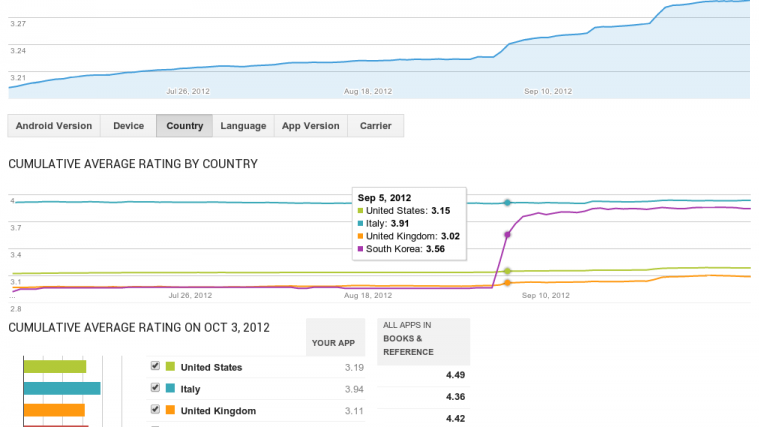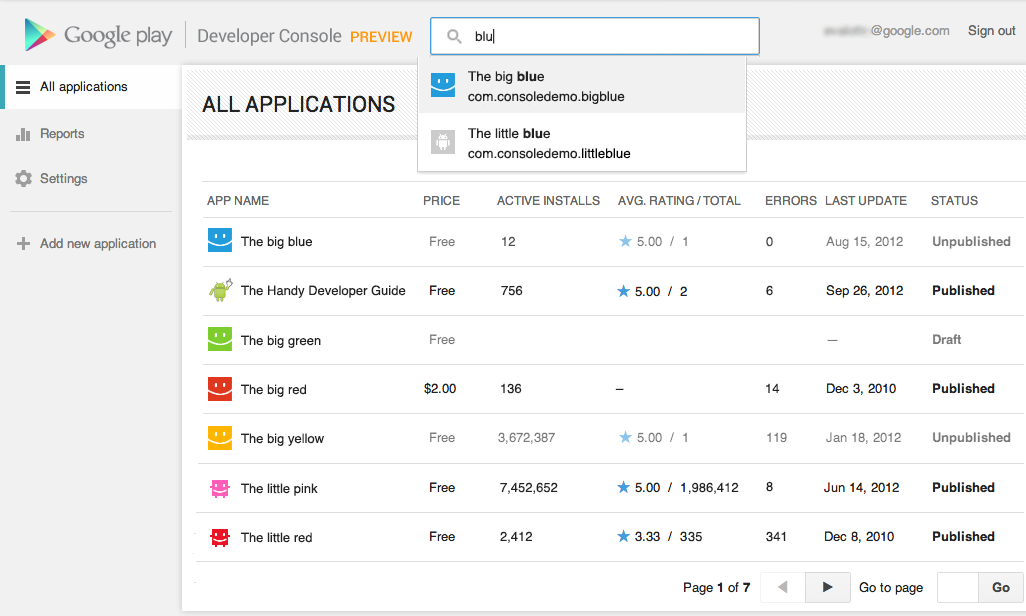Google has overhauled the developer dashboards for its Google Play online store, with the objective of making it easier and faster for Android developers to publish, manage, and track the performance of their apps. Google had first introduced the new Google Play Console at its annual Google I/O conference in June earlier this year, and later opened it up to developers for a limited beta program.
The main focus of the redesign has been on making vital information about a developer’s apps more easily accessible in a sleeker, faster and easy to navigate form. The initial All Applications view lists every app in a developer’s catalog and gives an overview of the status of each, and developers can also view a single app by using the integrated search.
The detail page for each application package file (APK) gives a summary of its version history, including publication dates and the number of devices that it is compatible. When a developer uploads a new version of an APK, the new Console shows a list of any changes since the last version, making it easier to spot any unintentional errors that may have occurred, and rectifying them, before actually publishing the new version for public consumption.
Another significant feature of the updated Google Play Console, is the new reporting feature for user app ratings. With the new version, developers are able to track how users are rating their apps, both in terms of their all-time cumulative ratings and ratings that come in on a given day. See main image at the beginning of the post. The statistical data can further be broken down by device, country, language, mobile carrier, Android version, and app version.
The update also incorporates a new app publishing flow and the ability to publish the app listing in 49 languages. Once you’ve saved any change to your application in the new Developer Console, end users will have the option of viewing an automatic translation of your listing in a language of their choice.
The new console can be tried out by clicking the Try the new version header on the existing console. Alternatively you can directly access the new console through this link. The new dev console is not completely ready yet, and certain advanced features like multiple-apk support and apk expansion files support is not yet added. To be able to work with these features, one would have to switch back to the older version.
If you are an Android app developer, you can check out the new Developer Console, and be sure to let Google as well as us know, about your feedback.







